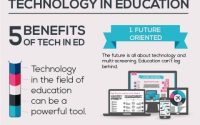Adult Literacy Programs: Impact and Effectiveness
Technology has revolutionized the way we live, work, and communicate. In today’s digital age, it is essential for adults to have strong literacy skills in order to succeed in the workforce and in daily life. Adult literacy programs play a crucial role in improving literacy levels and empowering individuals to reach their full potential.
The Impact of Adult Literacy Programs
Adult literacy programs have a significant impact on individuals, families, and communities. By improving literacy skills, adults are better equipped to secure employment, advance in their careers, and participate more effectively in society. Studies have shown that adults who participate in literacy programs are more likely to find stable jobs with higher wages, leading to increased financial stability and improved quality of life.
Furthermore, adult literacy programs help break the cycle of intergenerational illiteracy by empowering parents to support their children’s education and academic success. By improving their own literacy skills, parents are better able to assist their children with homework, engage with teachers, and advocate for their children’s educational needs.
The Effectiveness of Adult Literacy Programs
Adult literacy programs vary in format and content, but they all share the common goal of improving literacy skills and empowering adults to achieve their personal and professional goals. These programs may include basic literacy instruction, GED preparation, English as a Second Language (ESL) courses, digital literacy training, and workforce development programs.
Research has shown that adult literacy programs are highly effective in improving literacy levels and increasing educational attainment. Participants in these programs demonstrate improved reading, writing, and numeracy skills, as well as increased confidence and self-esteem. Many adult learners also report greater satisfaction with their jobs and improved job performance after participating in literacy programs.
One key factor in the effectiveness of adult literacy programs is the use of technology. Digital tools and online resources can enhance the learning experience for adult learners, providing interactive lessons, personalized feedback, and real-time progress tracking. Technology also makes it easier for adults to access educational materials and support services, particularly for those who may have limited mobility or transportation options.
Conclusion
Adult literacy programs have a profound impact on individuals, families, and communities by improving literacy skills, increasing educational attainment, and empowering adults to reach their full potential. These programs are highly effective in equipping adults with the skills they need to succeed in the workforce, support their families, and actively participate in society.
By leveraging technology and innovative teaching methods, adult literacy programs can continue to evolve and meet the changing needs of adult learners in the digital age. Investing in adult literacy programs is not only a sound educational strategy, but also a smart economic decision that benefits individuals, businesses, and communities as a whole.

